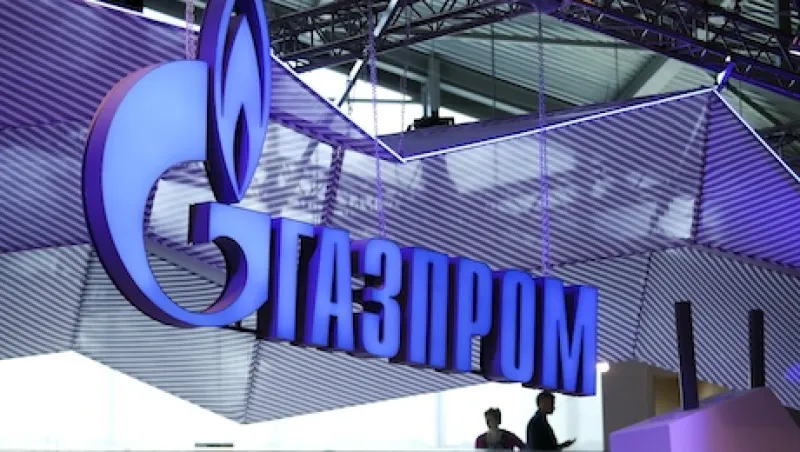“Invest at the point of maximum pessimism.” Thus spoke John Templeton, perhaps the investor whom I’ve admired the most. Templeton was onto something. It couldn’t have been easy for anyone to purchase stocks in 1933 or late 1974, in the wake of major crashes. Buying bonds in 1982, following several decades of a relentless bear market, had to be tough too. Gold was considered just another four-letter word in 2001 when it hit $255 an ounce, down from $800 in 1980. Yet all of these times turned out to be great opportunities to make money.
Investors currently searching for maximum pessimism need look no further than Russia. Its stocks are, along with those of gold miners, probably the most despised investment I’ve encountered during my 30-plus-year career. Russia — having lost the Cold War two decades ago, infamous for organized crime, corruption and powerful oligarchs worth billions, and still hated passionately by many — sports a stock market selling at a mere 5 times earnings and 0.6 times book value.
This environment is reminiscent of when Templeton famously invested in Japan during the mid-1960s. Japan was then an emerging market. The country had been devastated in a world war just 20 years earlier in which it had been the enemy of the U.S. and other Allied nations. In the ’60s, and even the ’70s, many people still harbored deep resentment toward the Japanese. Japan was widely believed to be corrupt — the yakuza (organized crime groups) were prevalent and the military industrial complex from the war still dominated much of the business community. Its goods were considered substandard. Its banking system was different and risky. Fluctuations in stock prices were too extreme. And there wasn’t enough information.
As a result, Templeton found the market trading at only 4 times earnings. Conversely, stocks in the U.S. were trading at a price-earnings ratio of nearly 20. With the U.S. stock market currently offering values akin to those of the mid-’60s, Russia looks like it provides a contemporary version of the camouflaged safe harbor that Japan did back then. The similarities with postwar Japan are eerie. To quote Mark Twain: “History doesn’t repeat itself, but it does rhyme.”
Great Russian companies can be purchased for even less than the overall market. Russia’s dominant bank, Sberbank, sells at 89 percent of book value and 6.5 times earnings, and yields 2.6 percent — despite having solid growth opportunities and a high return on equity, and residing in a country whose debt, as a percentage of GDP, is roughly a tenth of that in Europe and the U.S. Gazprom, one of the largest energy companies globally, sells at 40 percent of book value and 2.8 times earnings, has a dividend yield of 5.7 percent and is capitalized at $1 per barrel of the oil equivalents it owns.
Federal Grid Co. of Unified Energy System, a dominant electricity distribution company, trades at just 14 percent of book and 3.3 times estimated earnings. RusHydro is one of the world’s great franchises for generating cheap, clean, carbon emissions–free hydroelectricity and is trading at just under half of book value, 10.5 times earnings and 3 times gross cash flow, and has a dividend yield of 1.9 percent. RusHydro, Federal Grid, Gazprom and Sberbank are just a sampling of the bargains.
Are there problems in Russia Absolutely. But though the problems are real, so are the positives. Russia has a smart, educated workforce. The population is large, yet not so big in comparison with the country’s vast landmass and abundant resources. Russia provides 38 percent of Europe’s gas and 32 percent of its oil. 13D Research reports that noncommodity sectors like consumer goods, pharmaceuticals and automotive have shown significant growth in the past three years.
The country holds foreign reserves of $433 billion, including gold reserves of 1,030 tons (the sixth-largest in the world). Its debt to GDP is roughly a tenth of the level found in the U.S. and many European countries. Western companies over the past dozen years have invested more than $90 billion in more than 1,150 Russia-based plants and facilities and receive $75 billion in annual revenues from them. Companies such as BP, ExxonMobil and Raiffeisen Bank have stated publicly that they are in Russia for the long term.
Finally, at a time when investors are bailing out of Russia while simultaneously, astoundingly, willing to pay more than 2 times sales, 2.5 times book and 25 times CAPE (cyclically adjusted price-to-earnings ratio) for stocks in the U.S., I’ll leave you with the wisdom of John Templeton: “People are always asking me where the outlook is good, but that’s the wrong question. The right question is: Where is the outlook the most miserable” • •
David Iben is CIO and lead portfolio manager for Tampa, Florida–based Kopernik Global Investors.






